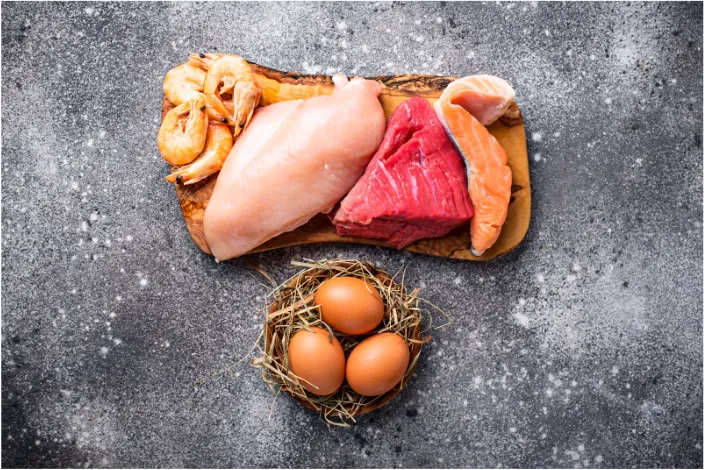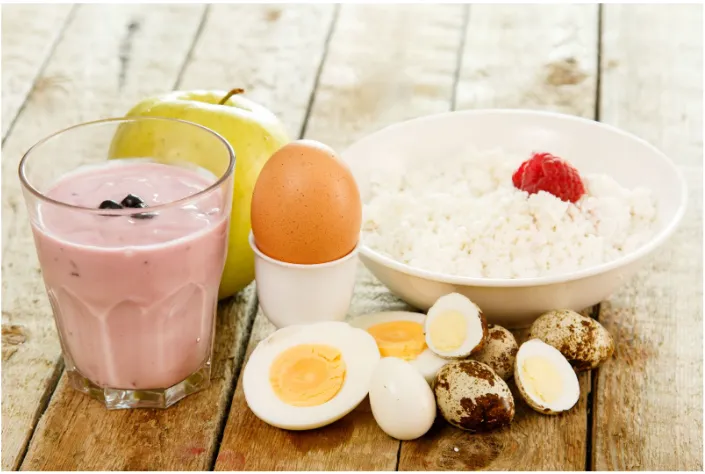Protein and Recovery: What Runners and Hybrid Athletes Over 30 Need to Know
5 MINUTE READ
For years, we’ve been told that the body can only process 20–30 grams of protein at a time and that eating smaller, frequent meals is the best way to support muscle recovery. But new research challenges this outdated thinking—especially for runners, hybrid athletes, and anyone over 30 looking to optimize performance, recovery, and longevity.
A 2023 study published in Cell Reports Medicine found that larger protein doses—up to 100 grams—provide sustained muscle repair and recovery benefits for more than 12 hours. If you’re balancing intense training with career, family, and the natural aging process, these findings may change how you approach nutrition for endurance, strength, and injury prevention.
Why This Matters for Runners & Hybrid Athletes Over 30
As we age, muscle recovery slows down, and protein utilization becomes less efficient—meaning we need more protein to get the same muscle-building benefits as we did in our 20s.
Whether you're training for a marathon, competing in CrossFit, or mixing running with strength training, protein intake is crucial for injury prevention, muscle retention, and overall performance.
Key Takeaways from the Study
✅ More Protein = Longer Recovery Benefits

Eating 100g of protein after training kept muscle protein synthesis (MPS) 40% higher for up to 12 hours compared to 25g.
✅ Your Body Doesn’t “Waste” Extra Protein
Unlike past claims, excess protein is not simply burned or excreted—it fuels muscle repair and growth over time.
✅ Less Frequent, Higher Protein Meals Can Be Effective
Instead of stressing about eating protein every 3 hours, runners and hybrid athletes can benefit from larger, well-spaced protein intakes—which is ideal for those following time-restricted eating or intermittent fasting.
How to Apply This to Your Training & Recovery

🔹 Prioritize Total Daily Protein Intake
Aim for 0.8–1.2g of protein per pound of body weight daily.
If you’re training hard, increase intake to 1.2–1.6g per pound to maximize recovery.
🔹 Don’t Be Afraid of Larger Protein Meals

Post-run or post-workout: Instead of limiting yourself to 25g, go for 50–100g if you won’t eat again for several hours.
Example: A shake with whey, Greek yogurt, or eggs can hit 50g+ of protein in one meal.
🔹 Focus on High-Quality Protein Sources
Lean meats (chicken, beef, fish), eggs, dairy, and plant-based options (tofu, lentils, quinoa, pea protein).
Collagen and whey protein can aid tendon and muscle recovery, which is key for runners over 30.
🔹 Combine Strength & Endurance with Smart Recovery
Strength training + proper protein intake helps runners maintain lean muscle and avoid injuries.
Hybrid athletes mixing running, lifting, and high-intensity workouts will see faster recovery and better long-term performance with optimal protein intake.

Final Thoughts
If you’re a runner or hybrid athlete over 30, your approach to protein may need an upgrade. Instead of stressing over meal timing, focus on getting enough total protein daily and don’t fear larger servings post-workout. Science is showing us that your body can efficiently use more protein than previously believed—helping you stay strong, recover faster, and perform at your best.
Want to optimize your training and recovery?
Try adjusting your protein intake for a few weeks and see how it impacts your muscle recovery, energy levels, and injury resilience. The science is clear—protein matters, and more of it may be better than we once thought. 💪🏃♂️🚴♀️
Reference:
Trommelen, J., van Lieshout, G. A. A., Nyakayiru, J., Holwerda, A. M., Smeets, J. S. J., Hendriks, F. K., van Kranenburg, J. M. X., Zorenc, A. H., Senden, J. M., Goessens, J. P. B., Gijsen, A. P., & van Loon, L. J. C. (2023). The anabolic response to protein ingestion during recovery from exercise has no upper limit in magnitude and duration in vivo in humans. Cell Reports Medicine, 4(12), 101324.
Post Address and Mail
Email: info@nlphysio.com
Address
1055 Darrington Drive
Cary, NC 27513
Address
4000 Wake Forest Rd Suite 112, Raleigh, NC 27609
Get In Touch
Hours
Mon - Fri: 9:00 am- 6:00 pm
Sat: By Appointment (8:00 am - 12:00 nn)
Sun: Closed
Phone Number:
919-650-4633

